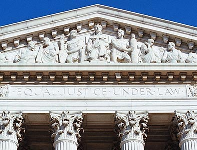Supreme Court Takes Public Employee Informational Privacy Case
The United States Supreme Court granted cert today in the public employee privacy case of NASA v. Nelson, No. 09-530 (petition for cert here). The case will consider whether NASA, a federal agency, violated the informational privacy rights of employees, who worked in non-sensitive contract jobs, by asking certain invasive questions during background investigations.
General Kagan, for the government, filed the petition for cert and is asking the Court to overturn the 9th Circuit decision which directed a district court to issue a preliminary injunction on behalf of contract workers at NASA’s Jet Propulsion Laboratory (JPL) operated by the California Institute of Technology under a contract with the federal government. The General maintains that the privacy expectations of the employees are minimal because they have are in the government employment context, these are standard background forms that the government is using, and the Privacy Act of 1974 protects this information from disclosure to the public.
The case was originally brought in 2007 by twenty-eight scientists and engineers employed as contractors at JPL on behalf of a potential class of 9,000 employees that NASA classifies as low-risk employees. Questions included in the background check ask about “any treatment or counseling” for illegal drug use, and forms issued to references seek “adverse information” about the workers’ employment, residence, and activities regarding violations of the law, financial integrity, abuse of alcohol or drugs, mental or emotional stability, general behavior, and “other matters.”
This will be an interesting case for a number of reasons.

 Lindsey Draper recalls that when he was a student at Marquette Law School, he would sometimes pause to look at photos of previous graduating classes. He would have a hard time spotting anyone who was African American like him.
Lindsey Draper recalls that when he was a student at Marquette Law School, he would sometimes pause to look at photos of previous graduating classes. He would have a hard time spotting anyone who was African American like him.